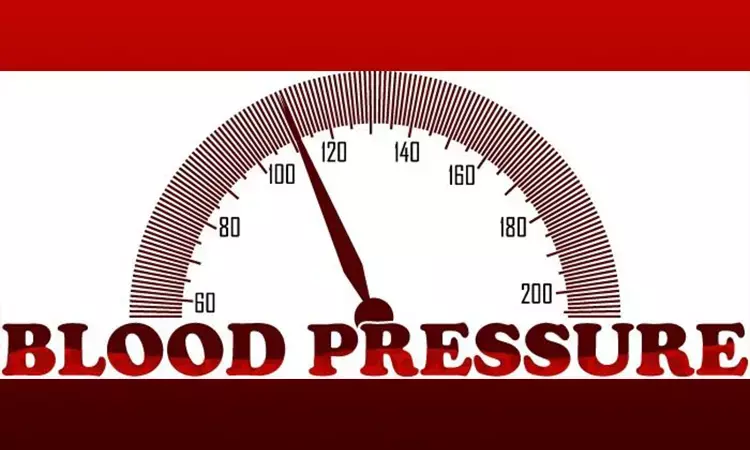- Home
- Medical news & Guidelines
- Anesthesiology
- Cardiology and CTVS
- Critical Care
- Dentistry
- Dermatology
- Diabetes and Endocrinology
- ENT
- Gastroenterology
- Medicine
- Nephrology
- Neurology
- Obstretics-Gynaecology
- Oncology
- Ophthalmology
- Orthopaedics
- Pediatrics-Neonatology
- Psychiatry
- Pulmonology
- Radiology
- Surgery
- Urology
- Laboratory Medicine
- Diet
- Nursing
- Paramedical
- Physiotherapy
- Health news
- Fact Check
- Bone Health Fact Check
- Brain Health Fact Check
- Cancer Related Fact Check
- Child Care Fact Check
- Dental and oral health fact check
- Diabetes and metabolic health fact check
- Diet and Nutrition Fact Check
- Eye and ENT Care Fact Check
- Fitness fact check
- Gut health fact check
- Heart health fact check
- Kidney health fact check
- Medical education fact check
- Men's health fact check
- Respiratory fact check
- Skin and hair care fact check
- Vaccine and Immunization fact check
- Women's health fact check
- AYUSH
- State News
- Andaman and Nicobar Islands
- Andhra Pradesh
- Arunachal Pradesh
- Assam
- Bihar
- Chandigarh
- Chattisgarh
- Dadra and Nagar Haveli
- Daman and Diu
- Delhi
- Goa
- Gujarat
- Haryana
- Himachal Pradesh
- Jammu & Kashmir
- Jharkhand
- Karnataka
- Kerala
- Ladakh
- Lakshadweep
- Madhya Pradesh
- Maharashtra
- Manipur
- Meghalaya
- Mizoram
- Nagaland
- Odisha
- Puducherry
- Punjab
- Rajasthan
- Sikkim
- Tamil Nadu
- Telangana
- Tripura
- Uttar Pradesh
- Uttrakhand
- West Bengal
- Medical Education
- Industry
Intensive BP lowering not linked to orthostatic hypotension:study

DALLAS — intensive blood pressure (BP)–lowering treatment reduces risk for cardiovascular disease, there are concerns that it might cause orthostatic hypotension (OH).
Researchers blood pressure treatment, orthostatic hypotension, Intensive BP lowering, BP drugs,Hypertension 2020 Scientific Sessions, New England journal of Medicine, NEJM,American Heart Association, blood pressure, high BP, blood pressure drugs,BP drugs found in a new study that anti hypertensive treatment did not increase risk of developing orthostatic hypotension and may in fact decrease it's risk.These findings suggest that orthostatic hypotension, a type of low blood pressure that occurs when moving from sitting or lying down to standing, should not be a reason to stop or reduce hypertension treatment.
The new research shall be presented Sept. 10-13, 2020, at the virtual American Heart Association's Hypertension 2020 Scientific Sessions. This study is publishing simultaneously in the scientific journal, Annals of Internal Medicine.
Orthostatic hypotension occurs when standing from sitting or lying down and the symptoms include feelings of dizziness or light-headedness and sometimes even fainting. The condition is more common among older adults, however, other factors also can increase the risk, including other conditions, such as heart disease and diabetes, and some medications.
Previously, medications to lower blood pressure were thought to increase the risk for extreme drops in blood pressure upon standing. Individual studies, however, were unable to definitively prove cause and effect. In this study, researchers assessed the results of nine separate studies as a meta-analysis, which can provide more information when analyzed collectively.
"Our findings should challenge the traditional teaching about blood pressure treatment causing orthostatic hypotension, reassuring clinicians about the safety of blood pressure treatment with regard to this condition," said principal investigator Stephen P. Juraschek, M.D., Ph.D., a clinician investigator at Beth Israel Deaconess Medical Center-Harvard Medical School in Boston.
Investigators reviewed three large medical databases — MEDLINE, EMBASE and CENTRAL —through October 7, 2019, to identify studies that examined the effects of blood pressure medications on orthostatic hypotension. For this analysis, researchers reviewed the health record assessments from nine large clinical trials of 31,043 adults with diagnosed hypertension. Nearly half of participants were women, one-fourth were over age 75 and one in five were African American.
"The study population was diverse, including older adults with a number of chronic conditions associated with cardiovascular disease, like diabetes," Juraschek said. "Nevertheless, the findings were consistent across subgroups."
Almost 50% of the patients were treated more aggressively, either to a lower blood pressure goal or with an active drug versus placebo.
Overall, the risk for low blood pressure upon standing decreased among participants taking medication to lower blood pressure, although the study did not look at what specific types of medication were taken. The greatest decrease in risk occurred among those with the lowest blood pressure upon standing, compared to participants with higher blood pressure on standing. The second-greatest decrease in risk occurred among participants without diabetes compared to those with diabetes.
"Orthostatic hypotension identified in the setting of intensive blood pressure treatment should not be viewed as a reason to decrease or discontinue blood pressure treatment," Juraschek said. "In fact, the finding that more aggressive blood pressure treatment lowered orthostatic hypotension was relatively consistent across the studies."
Several limitations could have affected the study's results. First, inconsistent information was available about symptoms and adverse effects, such as falls or fainting, from low blood pressure upon standing. Another limitation is that some cases of low blood pressure could have been missed, since most measurements occurred after one minute, instead of within the first minute of standing. In addition, measurements occurred only after standing from sitting, not from lying down to standing. Finally, the study did not include information about the classes of blood pressure medication used by participants.
Dr Kamal Kant Kohli-MBBS, DTCD- a chest specialist with more than 30 years of practice and a flair for writing clinical articles, Dr Kamal Kant Kohli joined Medical Dialogues as a Chief Editor of Medical News. Besides writing articles, as an editor, he proofreads and verifies all the medical content published on Medical Dialogues including those coming from journals, studies,medical conferences,guidelines etc. Email: drkohli@medicaldialogues.in. Contact no. 011-43720751


